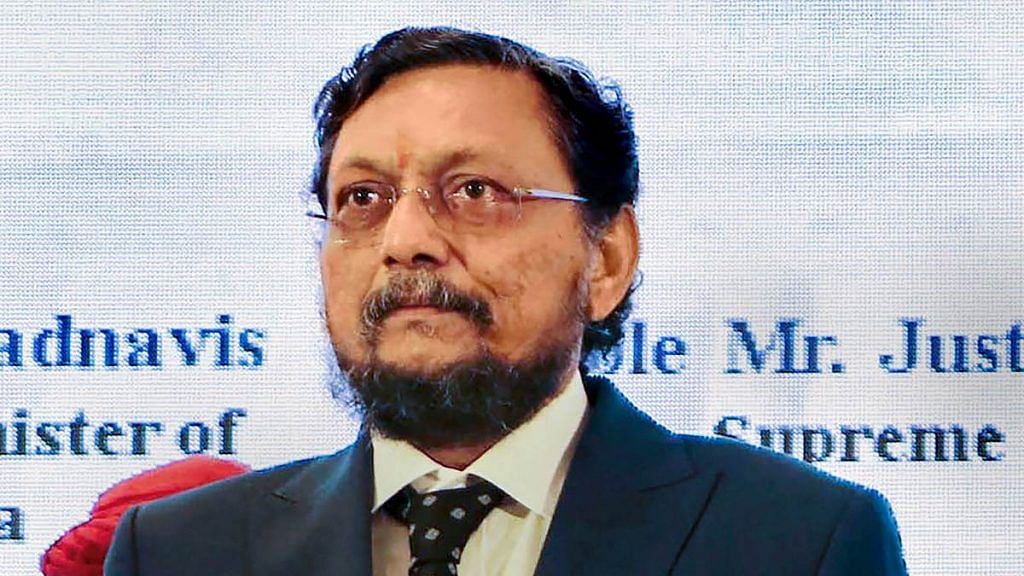Chandigarh: The Narendra Modi government has launched efforts to establish an All India Judicial Service (AIJS) on the lines of the IAS for administration and IPS for police, ThePrint has learnt.
According to a source in the Supreme Court, the central government has “informally informed” Chief Justice of India S.A. Bobde that a draft bill to this end is in the works.
“It has been indicated to us that the government is very serious about the AIJS. We have been told that the justice department, in consultation with the Union Ministry of Law & Justice, is currently drafting the bill in this regard,” the source, who is aware of the consultations, told ThePrint.
Once the bill is drafted, the CJI is learnt to have been informed, the contours of the proposed AIJS would be shared with the higher judiciary for further discussion.
The idea of an AIJS for direct recruitment of judges in the lower judiciary is expected to help tackle the towering vacancies that are a major factor in the endemic pendency dogging India’s judicial system. The Modi government has long favoured the idea, but successive CJIs and high court chief justices as well as many state governments have opposed the idea of instituting an AIJS.
The main reason for the opposition on the judicial side is that such a service may not work due to administrative reasons, while states fear the AIJS may dilute their role in appointments to the lower judiciary.
However, Bobde, who assumed office as CJI in November last year, has been a supporter of introducing an AIJS.
In 1976, Parliament had amended Article 312 to provide for an AIJS, but a lack of consensus at the time had scuttled the proposal to set it up.
Also read: 410 vacancies but govt sat on names — why 2019 wasn’t a good year for judge appointments
What needs to be done
Judges in the subordinate judiciary are currently selected through tests conducted either by the state governments or the high courts, and the state governments have administrative control — barring transfers — over the subordinate judiciary.
According to the Supreme Court source, the central government’s preliminary plan proposes direct recruitment for 25 per cent of the vacancies at the level of additional district judge. The government, the source said, is looking to entrust the recruitment to the Union Public Service Commission (UPSC), which conducts the civil services exam, or a new agency formed on the same lines.
The government, the source added, is also looking at direct recruitment for the entry-level position of magistrate. However, this may require an amendment in the Constitution — while Article 312 (1) allows Parliament to pass an Act to provide for the creation of an AIJS, a subsequent clause, Article 312 (3), says it should only be for judges above the level of district judge.
The institution of an AIJS would itself also require an amendment to Article 234 of the Constitution that deals with recruitment to subordinate judiciary. Under the existing provisions, recruitment of “persons other than district judges” is made by the governor “in accordance with rules made by him in that behalf after consultation with the State Public Service Commission and with the High Court exercising jurisdiction in relation to such state”.
Even though the CJI is said to support the idea, bringing an AIJS may yet prove difficult. For one, parties that are in opposition at the national level but in power in states may oppose the amendments in Parliament. Also, the CJI is yet to hold wider consultations on the matter with his brother judges.
Also read: Not just govt, judiciary also to blame for mounting judge vacancies in high courts
CJI also wants academy for student-judges
According to sources, CJI Bobde has also requested the government to study the feasibility of setting up an academy, on the lines of the National Defence Academy (NDA) for the armed forces, where students can study law and then, on passing out, join the subordinate judiciary as entry-level judges.
He has also suggested that the infrastructure of the National Fire Service College (NFSC), Nagpur — the CJI hails from Nagpur — could be considered for the purpose of setting up the academy.
Also read: Judge vacancies at high courts hit 2019 high — 414 posts need to be filled
